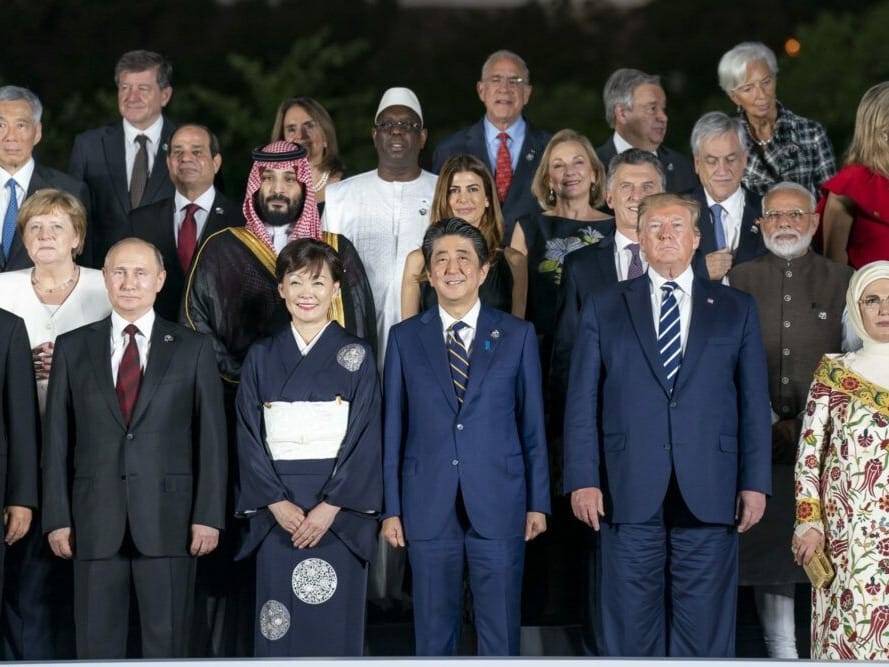The Group of 20 wrapped up a two-day summit warning of risks to global growth, but did not condemn protectionism. On the sidelines, U.S. President Donald Trump generated headlines meeting with Russian President Vladimir Putin and China's President Xi Jinping.
In a final statement on Saturday, leaders of the G-20 major economies cited growing trade and geopolitical tensions as a threat to global growth, which they said appears to be stabilizing and is generally projected to pick up moderately later this year and into 2020.









